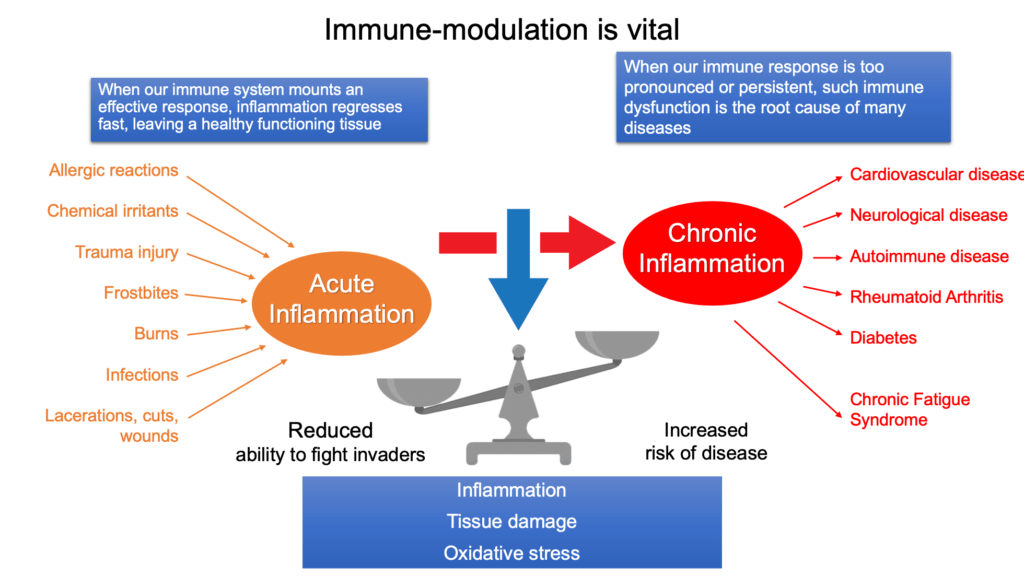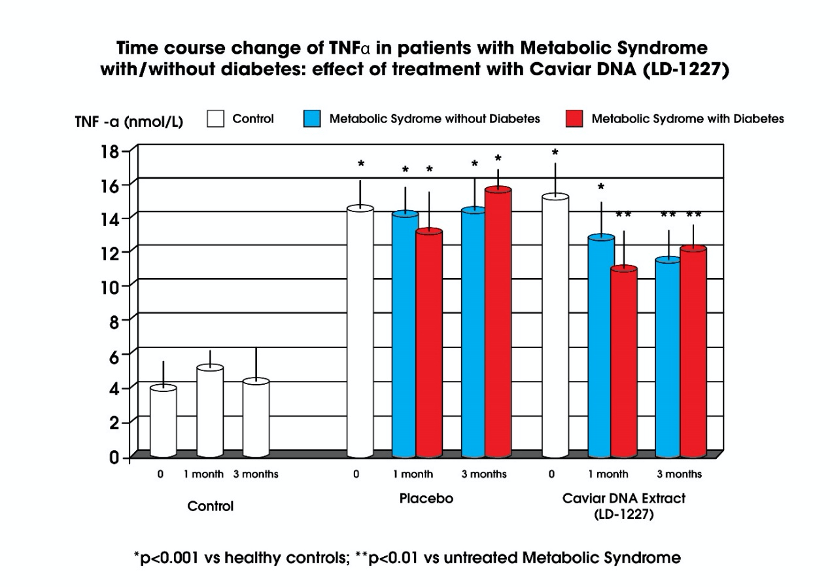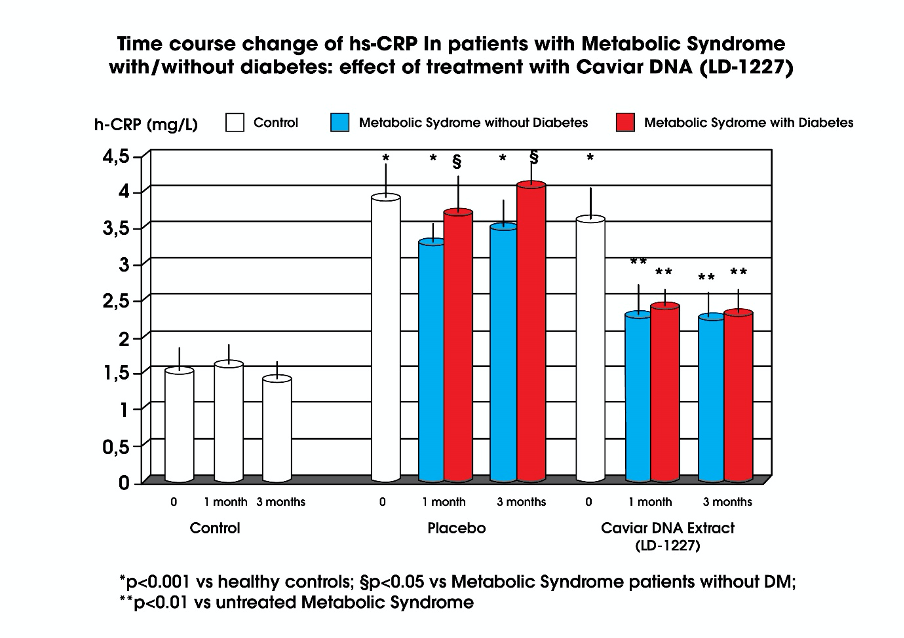How to Build Immune Resilience?
Caviarlieri | Published April 15, 2022
In an attempt to prevent the next pandemic, scientists around the world are monitoring animals both to try to identify any new pandemic-causing viruses, and to try to identify the next COVID-19 variant. If a new variant emerges that is significantly different from any of the variants we’ve seen previously, and if nobody has immunity — that’s effectively a brand-new pandemic.
From a public health perspective, to prevent the next pandemic, there is a pressing need to make the development and distribution of new-virus vaccines a truly global endeavour.
How should we then manage our health and build a resilient immune system so that we will not become victims of the next pandemic? How can we survive the next pandemic, overcome the side effects of Covid vaccines, recover from the current virus and still maintain our optimal quality of life?
Epigenetics, Resilience and Immunity
Immune resilience is about having an immune system that attacks and eliminates the microbe without hurting your own body cells or causing excessive inflammation. Resilience is the process that allows you to adapt to an adverse condition or stress, recover and return to homeostasis, or balance.
Interestingly, people with more resilience tend to be the people who have more robust immune systems. And the connection goes the other way too. A strong immune system promotes resilience in other aspects of life and health.
In a study published on November 2018 in the journal “Brain, Behaviour and Immunity”, the authors describe how resilient people have a different “immunophenotype”, meaning the way that specific immune genes are expressed for resilient people versus those who are more prone to stress and inflammation. This has everything to do with “epigenetics”.

Epigenetics is the study of how our lifestyle behaviours and environment can cause changes that affect the way our genes work. Environmental factors include sleep, nutrition, toxins, etc. can influence what genes in our body get turned on or off. Excitingly, this means we have the ability to strengthen our resiliency by modifying our lifestyle, nutritional habits and behaviour.
Epigenetics have nothing to do with our inherent DNA genes. Unlike genetic changes, epigenetic changes are reversible and do not change our DNA sequence, but they can change how our body reads a DNA sequence. With the optimal genetic expression, our body can produce the necessary proteins to accelerate cellular repair and renewal against damaged cells and keep us in optimal health.
An example of these connections is depression. In depression, there is a loss of resilience to the stresses and toxic exposures of life. What’s interesting is that those with major depressive disorder also have an increased rate of inflammatory disease, suggesting that the immune system is playing a critical role.
Anti-inflammatory treatments are a new area of research for depression, as managing inflammation seems to promote better resilience. Of note, those with inflammatory conditions including diabetes and heart disease are more at risk for severe outcomes with COVID-19. The immune system is already shifted towards inflammation with Covid infection and then the degenerative diseases push inflammation even more.
When it comes to the immune system’s resilience, what is crucial is having the appropriate response. This means having a big enough response when stimulated by something foreign, like a virus, but also having no response and remaining passive to things that don’t pose a threat, like a food or pollen for example. Therefore immune modulation or regulating our immunity is vital.
An over responsive immune system lead to autoimmunity and chronic inflammation.

How to Build Immune Resilience?
Building a resilient immune system is not equivalent to a quick fix or focusing on one-time immune “boost”. Instead, it involves cultivating daily lifestyle practices, including health diet, exercises and effective nutritional supplements that can rewire immunity and build resilience over time.
Lifestyle improvements
Living under constant stress, even low-grade ones, that continues day in and out, causes the body to produce too much cortisol, the stress hormone. Over time, elevated cortisol lowers your resistance to fighting off infection and contributes to poor sleep and higher blood pressure.
Protect yourself from stress and bolster your immune system with a few lifestyle tweaks:
- Sleep: You need seven to eight hours of quality sleep each night to fight off infection. Both exercise and stress management during the day helps with sleep at night. Your body does the most healing while you are in deep sleep, so to build immune system resiliency start improving your quality of sleep immediately.

- Breathing: Even five minutes a day of simply sitting quietly and focusing on your breath, can make a difference. Breathing can help lower your heart rate and blood pressure and reduces anxiety. Plus, it’s calming. So it’s not surprising that it also helps you sleep.
- Exercise: Exercise increases your resilience so you can fight off infection by doing a mixture of cardio and strength training.
Focus on food
Adopt an anti-inflammatory diet. Many of the fibre-rich colourful foods that help to feed a healthy microbiome, are also antioxidant-rich and anti-inflammatory. Since Covid 19 can cause systemic inflammation, having effective nutrition daily can potentially help to lower our baseline inflammation and therefore supports our immunity. This is not a one-time recipe of exotic greens or a shot of ginger turmeric juice, but day-in and day-out diet choices you make that profoundly impact your health and resilience long term.
Natural immunity aids
If you’re ready to give it all you’ve got when it comes to avoiding the coronavirus and future potential pandemic, consider these extra measures:
- Supplements: Consider taking evidence based supplements which are backed by peer reviewed scientific studies.
Caviarlieri, Swiss Caviar Cell Therapy supplement for Immune Resilience and Inflammation Control

Caviarlieri is formulated with potent bioactive ingredients like Sturgeon Caviar DNA cellular extract and high quality marine peptides and marine collagen peptide which are extremely rich in amino acids and essential fatty acids known to enhance B cell activity, which could be useful for those with a compromised immune system.
Manufactured using a proprietary Swiss cold extraction technology, Cellularix, the ingredients are kept “active” so that the chemical integrity and potency of the micro nutrients are not destroyed or compromised. This will help optimize our absorption of the micro nutrients into the body and maximize the outcomes and results.
In addition, Caviarlieri is made of potent peptides which help to escort the nutrients into our cells for protein synthesis which is an important process to accelerate cellular renewal and repair versus damaged cells. If essential nutrition is provided at the cellular level, it will help maintain or strengthen the functionality of our immune system and potentially provide cellular immunity
One of the key ingredients of Caviarlieri is Marine Collagen peptides. These peptides are known to modulate 3 key factors for effective immune response – Inflammation, Tissue Damage, Oxidative Stress. For people with a compromised or dysfunctional immune system, immune modulating is vital.
Most of the fatalities related to Covid-19 are attributed to cytokines storm or hyperinflammation. A key aspect of our immune system is associated with the communication of cells which is mediated by cytokines, a broad category of enzymes or chemical messengers of the cells. Cytokines play a beneficial and detrimental role to our immune response. Apart from triggering inflammation, they are also involved in healthy tissue turnover and promote the remodeling of ECM (Extra Cellular Matrix). Extracellular matrix provides support and anchorage for the shape of the cells, regulates and determines cells dynamic and behavior including cell survival, cell proliferation, cell polarity, cell differentiation, cell adhesion, and cell migration.
The goal for a balanced, resilient immune health system is therefore to reduce cytokines concentration without blocking its production.
Backed and Validated by Science

Clinically proven with its scientific studies which are published in world renowned peer reviewed journals and also in PubMed and Europe PMC, these studies validate the supreme rejuvenating, regenerative and anti-aging benefits of the Caviar Cellular DNA Extract and marine peptides and collagen, Co-enzyme Q10 and selenium encapsulated in Caviarlieri and demonstrate its effective therapeutic outcomes and its ability to modulate and modify disease-related processes and build and sustain immune resilience.
Genetic Expression Studies on Caviarlieri
Our genes define our potential, our limitations, and our predispositions. Our DNA sequence is inherited from our parents and this cannot be changed. However, the expression of our genes is responsive and it is influenced by epigenetics – our lifestyle, including our diet, physical exercise, sleep habits, social interactions, exposure to toxins, psychological stress, and environmental factors.
When the information stored in our DNA is converted into instructions for making proteins or other molecules, it is called gene expression. It acts as both an on/off switch to control when proteins are made and also a volume control that increases or decreases the amount of proteins made.
Scientific discoveries have shown that the expression of certain genes correlates with biological aging. Unbalanced gene activity is the root of inflammation, stress and hormonal imbalance, ultimately affecting our health-span and overall wellbeing.
Initial In-Vivo research studies (at the molecular level) on Caviarlieri for patients from age 18-83 have proven that this caviar supplement is effective in the gene expression of genes related to key anti-aging biomarkers:
- a significant reduction in the expression of the Cox2 gene which is an indication on the level of inflammation,
- an increase expression of Type 1 Collagen gene – collagens are a family of proteins that strengthen and support many tissues in the body, including cartilage, bone, tendon and skin,
- an increase in energy levels evident from the enhanced expression of the GABPB1 gene
Significant Reduction and Regulation of Inflammation with Caviar Cell Therapy Supplement
Caviarlieri is scientifically proven to help reduce the Tumour Necrosis Factor Alpha which is an important inflammatory biomarker for metabolic syndrome conditions. In addition, Caviarlieri can also reduce the C-reactive protein (CRP), a blood test marker for inflammation in the body. CRP is classified as an acute phase reactant, which means that its levels will rise in response to inflammation.
There are also several current and ongoing studies which indicate that Caviarlieri triggers the epigenetic mechanisms of the cells to activate gene expression for inflammation reduction which will help alleviate the onset of any of the risks associated with the diseases as a consequence of metabolic syndrome.
Note: Metabolic syndrome is a cluster of conditions such as high blood pressure, high blood sugar, unhealthy cholesterol levels, excess abdominal fat that increases your risk of heart disease, stroke and type 2 diabetes.
- Published in Peer Reviewed Journal – Acta Bio Medical / Official Journal of the Society of Medicine and Natural Sciences of Parma Vol 84-53-60/2013
A sturgeon-derived bioactive compound beneficially modulates nuclear receptors controlling metabolic functions in patients with metabolic syndrome
A. Lorenzetti, R. Catanzaro, G. Bertuccelli, N. Zerbinati, . Jain, U. Solimene, S.K. Yaduvanshi, N. Srivastava, E.Minelli, H. Yadav, C. Tomella, F.Marotta
The aim of the study was to test the possible effects of a novel sturgeon-derived compound Caviar DNA Extract (LD-1227) on inflammatory markers related to metabolic nuclear receptors in patients with metabolic syndrome. The study population consisted of 76 patients with metabolic syndrome and 30 healthy subjects who were maintained to their current treatments and randomly supplemented with A) Caviar DNA Extract (LD-1227) (n=38) or B) placebo (n=38) as compared to C) healthy controls (n=30). Caviar DNA Extract (LD-1227) or placebo (water-soluble starch) were given daily at breakfast and dinner for three months.
At the end of the study period, as compared to B group, Caviar DNA Extract LD-1227-treated patients showed a significant improvement of all parameters (hs-CRP, IL-6, TNF-alpha) tested, irrespective of the presence of diabetes. The study’s findings show that although the metabolic syndrome remains a multifaceted condition requiring a complex approach, Caviarlieri (LD-1227) could be a potential safe therapeutic tool to be integrated into a wider treatment and preventive medicine schedule strategy.

Time course change of TNF-alpha in patients with Metabolic Syndrome with/without diabetes: effect of treatment with Caviar DNA (LD-1227)
After intervention with Caviar DNA Extract (LD-1227), TNF-α level (inflammation) decreased significantly in all Metabolic Syndrome patients (p<0.05 vs baseline and vs placebo group).

Time course change of hs-CRP in patients with Metabolic Syndrome with/without diabetes: effect of treatment with Caviar DNA (LD-1227)
The level of hs-CRP in patients with Metabolic Syndrome was significantly higher than in healthy controls (p<0.05, fig 2) and particularly in those with overt diabetes (p<0.05 vs MS patients without diabetes). After intervention with Caviar DNA Extract (LD-1227), hs-CRP significantly decreased (p<0.05 vs placebo).
Note: C-reactive protein (CRP) is a blood test marker for inflammation in the body. CRP is produced in the liver and its level is measured by testing the blood. CRP is classified as an acute phase reactant, which means that its levels will rise in response to inflammation.
A high-sensitivity C-reactive protein (hs-CRP) test, which is more sensitive than a standard test, also can be used to evaluate your risk of developing coronary artery disease, a condition in which the arteries of your heart are narrowed. Coronary artery disease can lead to a heart attack.
Conclusive Summary
It is evident from the above studies that Caviarlieri is a potent and effective supplement for alleviating metabolic syndrome by reducing inflammation. After administering Caviar DNA Extract (LD-1227), levels of all tested cytokines (inflammatory biomarkers) in Metabolic Syndrome patients markedly decreased whereas their levels remained unchanged in patients receiving placebo. This suggests that Caviar DNA Extract (LD-122 could provide protection for Metabolic Syndrome patients and that this protection was proportionally more evident even for patients with diabetes.
In another peer reviewed study on Caviarlieri, the intervention with Caviar DNA Extract (LD-1227) has shown in human chondrocytes that this sturgeon-derived compound with its marine collagen peptides could effectively inhibit IL-1β-induced proliferation and inflammatory reactions via inhibited activation of the transcription factor NF-κB pathway. Caviarlieri contains collagen elastin, protein and a rich array of other smaller unsaturated fatty acids, and structural phospholipids which may exert a synergistic action on multiple mechanisms of the inflammatory cascade.
Why is Caviarlieri a Safe and Potent Option?

Caviarlieri is not a drug but an oral food supplement approved by the Swiss Public Health Authority. Unlike drugs or medications, there are no side effects for long term use. Caviarlieri is also certified by the “Cologne List” to be free of steroids, hormones and stimulants which makes it safe for long-term use.
Caviarlieri is also backed by Science as it has several studies published in peer-reviewed journals and the multifunctional benefits are evidence based claims, like significant increase in energy levels, mood elevation, reduction in joint pain, enhancement of sleep quality, improving brain health, reduction in inflammation and many others. These are important benefits which will potentially protect us from the malefic effects of COVID-19 and help build.
Build Immune Resilience and enjoy sustainable Immunity
By addressing the root, instead of simply applying a band-aid to your health concerns, you’ll build a solid foundation to health and increase your resiliency. It may be a bit more effort, but it’s worth the effort to have long-lasting health.
Subject
Recent Posts
-
The Amazing Benefits of Highly Polymerized Fish Collagen Peptides with Elastin – Caviarlieri
-
The World’s Most Effective Caviar DNA Extract with Marine Bioactive Peptides
-
Are Supplements effective for Joint Pain?
-
Why Is Sustainable Immunity Important for Your Long-Term Health
-
What is your “Body Age” – Biological Age?




